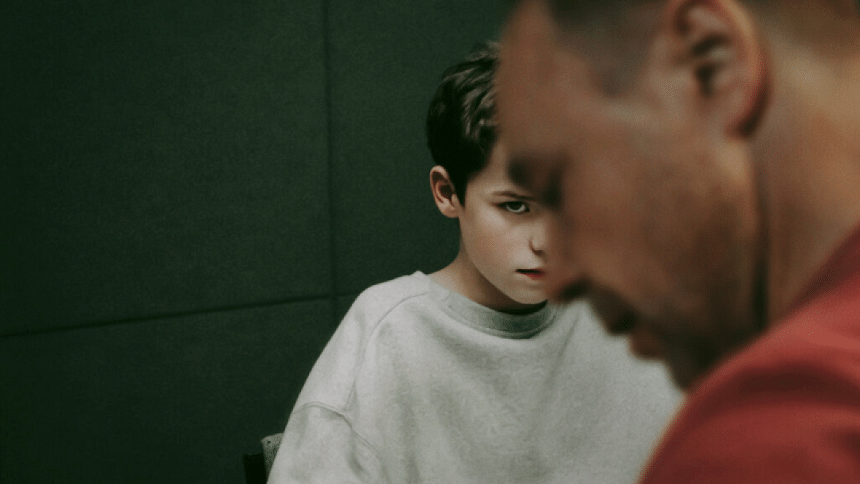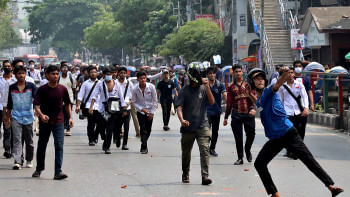Netflix’s ‘Adolescence’ is a wake-up call on online violence

If you haven't watched the show yet, spoilers ahead!
The clock strikes six in the morning. A large team of local police barge into the house of 13-year-old Jamie Miller. He is accused of murdering a girl named Katie the night before. At the crack of dawn, his father, mother, and elder sister watch in shock as the police ransack their entire house and take Jamie into custody.
Jamie firmly denies committing any crime. He begs his father to save him. His bewildered parents cannot believe that their well-behaved 13-year-old lad could have killed someone. They try to explain to the police that this has to be a mistake—that they have the wrong house.
However, to the shock of Jamie's parents at the police station, the police present CCTV footage collected from various streets and shops. The footage shows Jamie following Katie after nine o'clock the night before and eventually attacking her. Katie was stabbed at least seven times. There is no doubt: Jamie is the culprit. Now, the police want to know why he committed the murder and where he hid the knife.
By now, you must have realised I am talking about Adolescence, the four-episode Netflix mini-series released in March that has taken the world by storm. This is not your typical thriller or murder mystery. It's not the kind of story where the audience is left wondering who the killer is, sitting on the edge of their seats in suspense.
Instead, we already know who committed the murder very early in the series. But what follows is an extraordinary attempt by the storyteller and director to dive deep into the mind of a teenager and unravel his psychology bit by bit.
Teen gangs are a terrifying crisis worldwide. In 2022 alone, nearly 550,000 juvenile crime cases were recorded in the United States. The situation is similar in many other countries, including Bangladesh. The struggles of adolescence have always existed, but the unrestricted flow of internet content and the overwhelming influence of social media have intensified the issue. The internet often has a greater impact on teenagers' minds than their school, family, or anyone else. As a result, we witness how an ordinary boy or girl gradually transforms into someone unrecognisable, even to his or her families.
Jamie's father could not understand how the child who once sat at the bottom of the stairs sketching for hours could become so difficult to comprehend. Yes, after facing job issues, he could not spend much time with his family. He would leave in the morning and return home late at night. But hasn't Jamie's mother been there? If Jamie's elder sister could grow up to be so responsible, why couldn't he?
This is precisely the adolescent crisis that the director tried to address. In the third episode, during Jamie's conversation with a psychologist, we gradually uncover his mistrust, suspicion, and a lack of self-confidence. We learn that, like other teenagers, 13-year-old Jamie also wanted to experience love. He selectively follows various models on Instagram. Although he isn't very active on Instagram, he is always lurking there. However, he believes he is ugly and that no girl would ever like him. So, when a topless photo of his classmate Katie started circulating, he tried to take advantage of the situation.
Jamie openly admits that he is attracted to girls, that he wants to touch someone if given the opportunity. He even shares how he felt when a girl once touched his lower body. But when the psychologist, Briony, asks questions that he does not like, he becomes aggressive, shouting and breaking whatever he could find nearby. All he wants is for someone to listen to him attentively, without any counterquestions, and to say, "I am here for you."
Towards the end of their conversation, when Briony tells Jamie that their session is over, he becomes furious. He has just started relying on her. He has just begun speaking. Why is she leaving after listening to him so attentively? So, when he asks her, "Do you like me?", I believe every viewer watching this series felt a deep ache in their chest.
This series starkly highlights toxic masculinity and the crisis of modern male identity. The core theme of this series is incel culture.
Incel, or "involuntary celibate," refers to men who, despite desiring romantic relationships, fail to find partners. As a result, they are ridiculed, which further poisons their mindset. Such young men form communities on platforms like Instagram, reinforcing their shared frustrations. They believe that "80 percent of women are only attracted to the top 20 percent of men," who possess "looks-based hierarchy," meaning men must be attractive and wealthy to be desirable. As they face continuous rejection, they become entangled in criminal activities. They systematically spread misogyny and racism. Jamie and his friends fall into this pattern in the show. They are willing to do anything to prove their existence.
These teenagers communicate in the language of emojis. In the second episode, Adam, the son of the police officer in charge of Jamie's case, also a student of the same school as him, explains the meaning of various emojis to his father. For instance, when something is liked, people use a heart emoji. But did you know that different colours of heart emojis have distinct meanings? A red heart means love. The purple heart means sexual desire. A yellow heart means interest, as in asking if the other person is also interested. A pink heart means interested, but only sexually. An orange heart means reassurance, as in saying, "Don't worry, everything will be fine."
Can you imagine? How can a middle-aged mother keep up with all of this? Her child is growing up and no longer enjoys painting. He doesn't like anyone's company anymore. He locks himself in his room. How will she know what he is doing behind that closed door? In the fourth episode, Jamie's mother regrets, "If only I had paid more attention."
The four-episode series unfolds as follows: the first episode shows Jamie's arrest and police interrogation, the second explores his school life, the third focuses on his conversations with the psychologist in prison, and the final episode depicts the unbearable turmoil a family goes through when their child turns into a criminal.
The third episode has sparked discussions worldwide. The second episode provides a glimpse into how difficult it is for schools to handle groups of teenagers. It reveals how, just two days after a classmate is brutally murdered, students show no empathy. It also offers insight into how extreme bullying can be.
This Netflix series has shaken the world. The prime minister of England stated that internet-driven violence must be taken seriously. He even instructed all schools in England to screen this series.
If you have children over 10 years old, I think you must watch this series. If possible, watch it together with your child. Try to watch the third episode multiple times.
And no matter what your child is going through, never forget to say, "I am here for you."
IMDb Rating: 8.3.
My Rating: 9.5/10.
Mohammed Norul Alam Raju is a researcher and development activist pursuing higher studies in development policy and management in Belgium. He can be contacted at [email protected].
Views expressed in this article are the author's own.
Follow The Daily Star Opinion on Facebook for the latest opinions, commentaries, and analyses by experts and professionals. To contribute your article or letter to The Daily Star Opinion, see our submission guidelines.

 For all latest news, follow The Daily Star's Google News channel.
For all latest news, follow The Daily Star's Google News channel. 










Comments